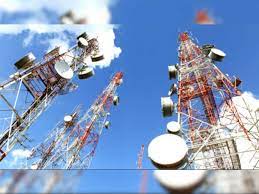With OTT growth over the next ten years, voice call revenue for telcos is expected to decline by 80% while SMS revenue will increase by 94%
In the previous ten years, as the use of internet-based calling and messaging applications increased, the income share of telecom carriers from voice calls and SMS has decreased by around 80% and 94%, respectively.
However, the study claims that between the quarters ending in June 2013 and December 2022, the income share per user from data consumption increased by nearly 10 times.

In its most recent paper on regulating internet messaging and calling services like WhatsApp, Google Meet, Facetime, and others, the telecom regulator Trai stated that the increasing use of over-the-top (OTT) applications for messaging and voice communication has caused a shift away from voice and SMS towards data as the main source of income for telecom service providers worldwide.
In its consultation paper on “Regulatory Mechanism for Over-The-Top (OTT) Communication Services, and Selective Banning of OTT Services,” the Telecom Regulatory Authority of India (Trai) stated that “In India, composition of the revenue basket of wireless access service providers has undergone a sea-change in the period from the year 2013 to 2022.”
With the exception of data revenue share, all of the important elements of average revenue per user (ARPU), a crucial matrix to assess the development of telecom carriers, have decreased between the June 2013 quarter and the December 2022 quarter.
The report claims that although the proportion of data income per subscriber has increased more than tenfold, from 8.1 percent in the June 2013 quarter to 85.1% in the December 2022 quarter, the ARPU has only increased by roughly 41%, from Rs. 123.77 to Rs. 146.96.
The data in the report demonstrates that between the December 2022 quarter and the June 2013 quarter, the revenue call share decreased to Rs 14.79 or 10.1 percent in ARPU of Rs 146.96 from Rs 72.53 or 58.6 percent.
Similar to this, SMS’s income share dropped from Rs 3.99 or 3.22 percent to 23 pence, or 20% of ARPU.
In the study, Trai examines whether OTT players may be placed under a licensing framework that would require them to pay entrance fees, revenue shares, assist legal interceptions, disclose call data records, spend money on regulatory compliance, and other costs in exchange for a service.
The authority has already advised OTTs to operate in the nation without having to get a license. To lessen the effects of a total internet shutdown in a troubled region, a parliamentary group on communications and IT suggested considering a selective restriction on services of internet calling and messaging applications.
A shutdown of telecommunications or the internet may have a substantial impact on a country’s economy and interrupt vital services like education and healthcare, according to Trai’s analysis of many recommendations, directives, and studies.
For these reasons, Trai said, “selective blocking of particular OTT applications and websites, etc., which are likely to be used by terrorists or anti-national elements to sow discord in the specified regions, appears to be preferable as compared to complete internet shutdown.”







